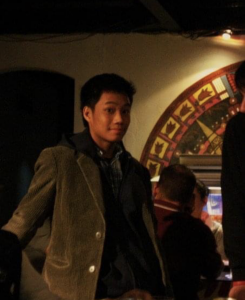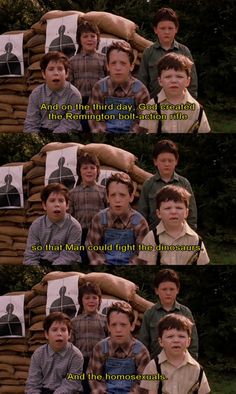COVID-19 made e-learning the new normal and with so many kids studying at home, some parents are wondering if permanent homeschooling can be a possible option for the kids in the future.
While it’s no longer rare to know someone who’s homeschooled, there’s still that notion that homeschool kids are… odd. You remember the opening scene of Mean Girls, when the protagonist describes how most people basically equate homeschooling to child neglect.
“I know what you’re thinking. Home-schooled kids are freaks. Or that we’re weirdly religious or something. “And on the third day, God created the Remington bolt-action rifle so that Man could fight the dinosaurs. And the homosexuals. – Amen.””
But one teen comedy aside, how do homeschool kids really turn out? Well, as it turns out, we have a homeschooled graduate working right here in the beijingkids office this whole time! We grilled John Nuega, a True Run Media Account Manager who is originally from the Philippines about his experience growing up.
For how long were you homeschooled, and what was your experience like?
I was homeschooled from my sophomore year through to senior year of high school. At first, I found homeschooling a bit challenging, but as time went along, it became apparent that it was very effective and it allowed me to control my own schedule.

Young John in his senior year
Why did your parents decide to homeschool you?
My parents chose to homeschool me because we had moved to Zhengzhou and there wasn’t an international high school available. We could have gone to a local Chinese school but the classes were taught in Chinese and I didn’t speak any at the time.
What was an average day like?
Classes started around 9am at my desk that was literally next to my bed. I would do different tasks per subject and then take a lunch break. In the afternoon I would be more flexible with my schedule, which allowed me to learn musical instruments, play sports, and socialize. Later that same day, maybe after dinner, I’d finish the rest of my schoolwork.
Who taught you and how were exams taken?
It was a self-study curriculum, however, when there are subjects that were more difficult, I would need the assistance of my parents and/or tutors. Exams were taken once a week per subject in front of my very principled father.
Does homeschooling mean that there’s no cost to education?
That’s a misconception that some people have, but there’s definitely a cost to homeschooling. For us, it ended up being a little more expensive than a normal school. I did my curriculum through a school in the US that had a branch in the Philippines. We had to sign up, purchase materials including all the books assigned by the school. Then my work was sent back to the branch in the Philippines then sent to the US to be graded.
Did you feel like you missed out on a ‘regular’ high school experience?
I think to a certain degree yes, however, I also see that I was better off without it. I learned a lot and was able to do the things I wanted to do while I was homeschooled. It gave me a lot of freedom.
Did you have friends even though you didn’t go to a physical school? Where did you meet them?
I had many friends. We lived in a university and most of my friends were actually teachers, I think that it the main reason why homeschooling worked for me. I had friends who were much older and they treated me with respect. They allowed me to explore and guided me towards healthy habits.
Did you date in high school? Was it more difficult due to being homeschooled?
Most of my friends were older, about 10 years older than me. There weren’t girls my age while I was homeschooled, so I only started dating when I went to college at 18.
In the last few months, e-learning has become the new norm for kids. Was your experience with homeschooling similar to e-learning?
I don’t think it’s similar at all. I didn’t have classmates or teachers while I was homeschooled. It’s a very different approach to education that also requires very specific materials and systems.

John and his sister today
There’s a misconception that homeschooled kids can become anti-social. Do you feel that homeschooling can hinder a child’s emotional development?
I think it’s a very high possibility that this can be the case. If it wasn’t for the fact that I lived on a university campus and was surrounded by other young people, it would have been very tough socially. It can also depend on how long homeschooling goes for. I was homeschooled for about 3-4 years and my sister was homeschooled for 8-9 years, but I’m confident to say that we both have strong social skills.
Please include anything else you feel our readers should know about your homeschooling experience.
Homeschooling can be tough and it’s definitely not for everybody. With that being said, for the right families, it could be the best form of education for the kids. And if the environment allows it to be effective it can be very fulfilling. I wouldn’t think twice about homeschooling my kids at some point during their childhood.
KEEP READING: 3 Beijing Families Reflect on Their Homeschooling Experiences
Photos: John Nuega, Shutterstock, Mean Girls





